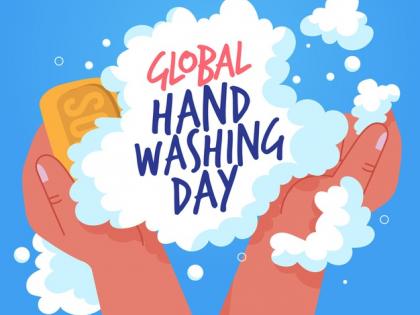Brief History Of Handwashing and significance of Global Handwashing Day
By Lokmat English Desk | Published: October 15, 2020 07:00 AM2020-10-15T07:00:00+5:302020-10-15T15:20:11+5:30
History Handwashing has been a central component of personal hygiene and a religious and cultural custom for many years. ...

Brief History Of Handwashing and significance of Global Handwashing Day
History
Handwashing has been a central component of personal hygiene and a religious and cultural custom for many years. However, the link between handwashing and health was first made less than two centuries ago.Ignaz Semmelweis, a Hungarian doctor working in Vienna General Hospital, is known as the father of hand hygiene. In 1846, he noticed that the women giving birth in the medical student/doctor-run maternity ward in his hospital were much more likely to develop a fever and die compared to the women giving birth in the adjacent midwife-run maternity ward. He decided to investigate, seeking differences between the two wards. He noticed that doctors and medical students often visited the maternity ward directly after performing an autopsy. Based on this observation, he developed a theory that those performing autopsies got ‘cadaverous particles’ on their hands, which they then carried from the autopsy room into the maternity ward. Midwives did not conduct surgery or autopsies, so they were not exposed to these particles. As a result, a new rule mandating handwashing with chlorine for doctors. The Crimean War, Italy brought about a new handwashing champion, Florence Nightingale. she implemented handwashing and other hygiene practices in the war hospital. United States Centres for Disease Control and Prevention identified hand hygiene as an important way to prevent the spread of infection.
Significance of Hand Hygiene:
Handwashing with soap and other forms of hand hygiene have been gaining recognition as a cost-effective, essential tool for achieving good health and nutrition.
Even when handwashing stations are available, proper handwashing with soap is still practiced inconsistently. Poor hygiene results in children and adults suffering from preventable diseases like diarrheal diseases and foodborne illness,2 people missing school or work, and more.
Hands should be washed with soap after using the toilet; after cleaning a child’s bottom (or any other contact with human excreta, including that of babies and children), and before any contact with food, such as before eating or before preparing food. Children and adults should also wash their hands after playing or working outside, or touching animals and their dwellings.
Handwashing with soap saves lives and protects health
Evidence shows that better handwashing practices could cut the rate of acute respiratory infections (including pneumonia) by more than 20%, 10 and diarrheal diseases by nearly 50%.
Evidence shows that hygiene is as important as water and sanitation in preventing diarrhoea.
Handwashing with soap can help reduce undernutrition, which contributes to 73% of diarrheal deaths each year.
Handwashing with soap and clean drinking water could reduce the loss of nutrients through diarrhoea and reduce stunting in children under 5 by up to 15%.
Proper hand hygiene compliance can lead to a 40% reduction in healthcare associated infections.
Handwashing with soap can prevent some of the most common causes of death and illness. For everyone to receive the benefits of handwashing, the behaviours, enabling environments and infrastructure need to be in place. Advocates have a vital role to play in building the investments, policies, and support needed to ensure everyone washes their hands with soap at all critical times
COVID‐19 has spread around the world with virtually no region left untouched. The speed of the spread and the alarming death rates has seen many countries and jurisdictions introduce measures to prevent the spread of COVID‐19, and handwashing features very strongly in all of these. Handwashing has received considerable attention during the COVID‐19 pandemic. It is a simple, primary preventive measure that most people can do independently. Handwashing with soap and water for at least 20 seconds or the use of alcohol‐based hand sanitizers when soap and water are not available is the first line of defence in stopping the spread of infection
The article is written by by Dr .Sunil Jain HOD Emergency & Medical Services, Jaslok Hospital & Research Centre
Open in app